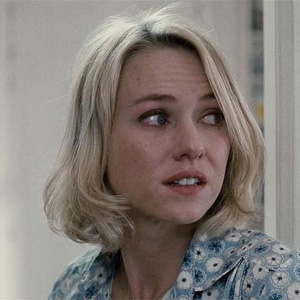Review: Funny Games (2007)
Cast: Naomi Watts, Tim Roth, Michael Pitt
Director: Michael Haneke
Country: France | Austria | Germany | Italy | USA
Genre: Horror
Official Trailer: Here
The following review continues Ronan Doyle’s Michael Haneke Director Spotlight.
Haneke’s 1997 Funny Games remains his most controversial film, its combination of the bleakness of his darkest works and the caustic indictment of its own medium’s violent voyeurism earning it a key place in the annals of film history. Ten years later, the intermittent arrival of the widespread fetishisation of violence and the proliferation of the so-called “torture porn” in mainstream cinema in some ways proved Haneke justified in his concerns, prompting him to remake the film shot for shot, but this time in English with an American cast. The idea of Funny Games had always been to critique the way in which the majority of audiences engaged vicariously with violence in cinema, particularly those in the United States (the very fact that the original, despite being in German, was officially entitled Funny Games is a telling remnant of this original intention). With the benefit of a critically acclaimed body of work behind him, Haneke was at last at a point after the success of Hidden where he could finally find the financing to make the film according to his original vision.
The rationale behind Haneke’s re-exploration of ideas he had first articulated a decade prior is the most interesting aspect of this Funny Games, and one that says much about the man as a filmmaker dedicated to disseminating his message. With the prestige of multiple awards at Cannes and other festivals behind him, Haneke was by 2007 in a prime position to do almost anything he wanted. His decision to use this growing influence to cast big-name stars Naomi Watts, Tim Roth, and Michael Pitt in an Americanised Funny Games reflects a deeply admirable aspect of his commitment as a filmmaker. In its first incarnation, it was an unexpected breakthrough work that demolished any vicarious expectations of horror audiences. His effort to bring this message to those who, as he saw it, were most in need of it is an extremely respectable pursuit, demonstrating just how much of a vocation cinema is to Haneke. Commendable though the reasons behind the film are, however, there are a number of inescapable realities that detract from the effect of their outcome.
His decision to use this growing influence to cast big-name stars Naomi Watts, Tim Roth, and Michael Pitt in an Americanised Funny Games reflects a deeply admirable aspect of his commitment as a filmmaker.
 The problem with the American Funny Games lies in the simple fact that it is, all things considered, unnecessary. Haneke’s aim was to reach that same mainstream market he had missed out on with his original, the kind of audience which would not have seen a subtitled foreign film. The remake, however much its profile might have been raised by the presence of Watts and Roth, was never to be the kind of film that would make it any further than the independent market (a reality corroborated by its ultimate box office failure). Funny Games was Haneke’s most difficult film, an intellectually motivated mental exercise come viewer indictment that should be considered more a didactic text than a piece of entertainment. It was never going to be something that would reach an audience outside of the arthouse theatres. The moviegoers most likely to find this incarnation of Funny Games are, for the most part, those same ones who would have been among the audience of its predecessor. Funny Games was never to be a multiplex movie on the scale of the likes of Saw and Hostel, those franchises it sought to criticise and condemn. It may be a film as haunting, striking, and meaningful as the first, but it was never one that would find the distribution required to have Haneke’s message fall on the ears he sought.
The problem with the American Funny Games lies in the simple fact that it is, all things considered, unnecessary. Haneke’s aim was to reach that same mainstream market he had missed out on with his original, the kind of audience which would not have seen a subtitled foreign film. The remake, however much its profile might have been raised by the presence of Watts and Roth, was never to be the kind of film that would make it any further than the independent market (a reality corroborated by its ultimate box office failure). Funny Games was Haneke’s most difficult film, an intellectually motivated mental exercise come viewer indictment that should be considered more a didactic text than a piece of entertainment. It was never going to be something that would reach an audience outside of the arthouse theatres. The moviegoers most likely to find this incarnation of Funny Games are, for the most part, those same ones who would have been among the audience of its predecessor. Funny Games was never to be a multiplex movie on the scale of the likes of Saw and Hostel, those franchises it sought to criticise and condemn. It may be a film as haunting, striking, and meaningful as the first, but it was never one that would find the distribution required to have Haneke’s message fall on the ears he sought.
It may be a film as haunting, striking, and meaningful as the first, but it was never one that would find the distribution required to have Haneke’s message fall on the ears he sought.
 Standing alone, this Funny Games is a film as effective in its implementation as the original, just as successful in deconstructing and condemning the voyeurism of violence in modern cinema. Yet taken for its intent of reaching a wider audience and spreading the message to those for whom Haneke envisioned it, it stands as an undeniable failure. Many have called this Funny Games not only Haneke’s worst film, but his first bad one. My respect for the important ideas the film articulates and the thinking behind its production prevents me from agreeing exactly, though such an argument is strong. It’s not a bad film, but making it was a bad idea, and leaves it as Haneke’s least interesting work to date. It’s hard to criticise or condemn, but there’s equally little to praise about it. This is a film honourable and admirable in its intentions, but inarguably ineffective in actually achieving them. Those who discover it without knowledge of its predecessor will doubtlessly be just as impacted, shocked, and affected, but the vast majority of these viewers are the same who would have found their way to the original anyway. This considered, Funny Games stands as a waste of time for Haneke, an unnecessary return to a previously treaded path, and a lost opportunity for the great director to bring forth something new, and I can’t help but begrudge it that.
Standing alone, this Funny Games is a film as effective in its implementation as the original, just as successful in deconstructing and condemning the voyeurism of violence in modern cinema. Yet taken for its intent of reaching a wider audience and spreading the message to those for whom Haneke envisioned it, it stands as an undeniable failure. Many have called this Funny Games not only Haneke’s worst film, but his first bad one. My respect for the important ideas the film articulates and the thinking behind its production prevents me from agreeing exactly, though such an argument is strong. It’s not a bad film, but making it was a bad idea, and leaves it as Haneke’s least interesting work to date. It’s hard to criticise or condemn, but there’s equally little to praise about it. This is a film honourable and admirable in its intentions, but inarguably ineffective in actually achieving them. Those who discover it without knowledge of its predecessor will doubtlessly be just as impacted, shocked, and affected, but the vast majority of these viewers are the same who would have found their way to the original anyway. This considered, Funny Games stands as a waste of time for Haneke, an unnecessary return to a previously treaded path, and a lost opportunity for the great director to bring forth something new, and I can’t help but begrudge it that.
-
http://justatad.wordpress.com/ Corey Atad
-
http://twitter.com/baronronan Baron Ronan Doyle
-
http://twitter.com/NextProjection Christopher Misch
-
http://twitter.com/baronronan Baron Ronan Doyle
-
http://twitter.com/NextProjection Christopher Misch
-
http://justatad.wordpress.com/ Corey Atad
-
http://twitter.com/NextProjection Christopher Misch
-
http://twitter.com/NextProjection Christopher Misch
-
http://twitter.com/baronronan Baron Ronan Doyle
-
Jason Coyle
-
http://twitter.com/baronronan Baron Ronan Doyle
-
http://twitter.com/baronronan Baron Ronan Doyle
-
Jason Coyle
-
http://twitter.com/NextProjection Christopher Misch
-
http://twitter.com/NextProjection Christopher Misch
-
http://twitter.com/NextProjection Christopher Misch
-
http://twitter.com/NextProjection Christopher Misch
-
http://justatad.wordpress.com/ Corey Atad
-
http://www.facebook.com/blevo Matthew Blevins
-
http://www.facebook.com/blevo Matthew Blevins
-
http://www.facebook.com/blevo Matthew Blevins


















 Review: Satantango (1994)
Review: Satantango (1994) Subversive Saturday: Routine Pleasures (1986)
Subversive Saturday: Routine Pleasures (1986) Review: The Flowers of War (2011)
Review: The Flowers of War (2011) Review: Funny Games (2007)
Review: Funny Games (2007) Review: Osaka Elegy (1936)
Review: Osaka Elegy (1936)

